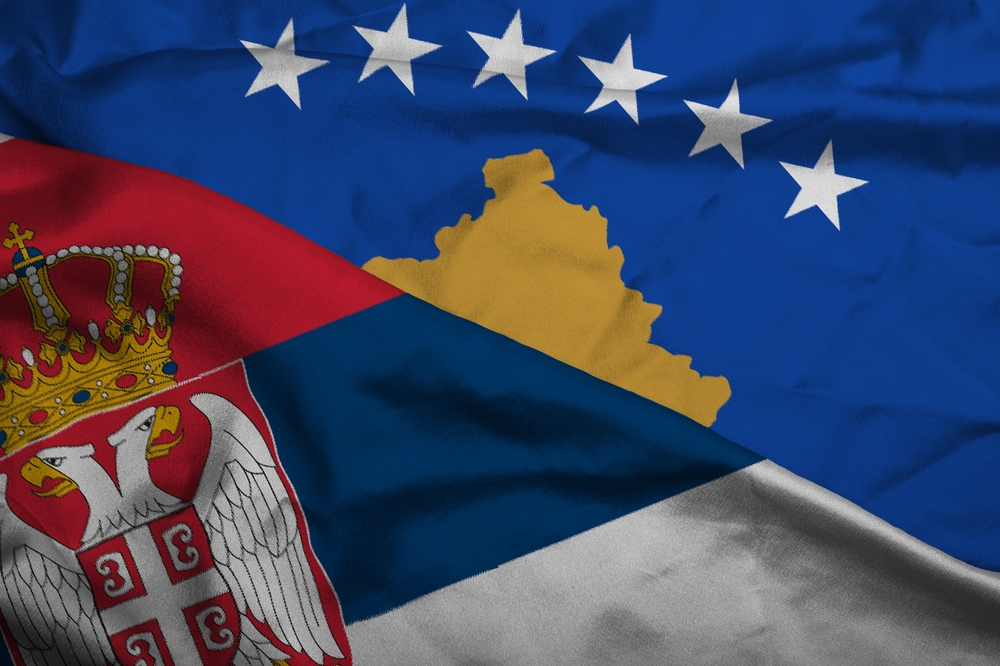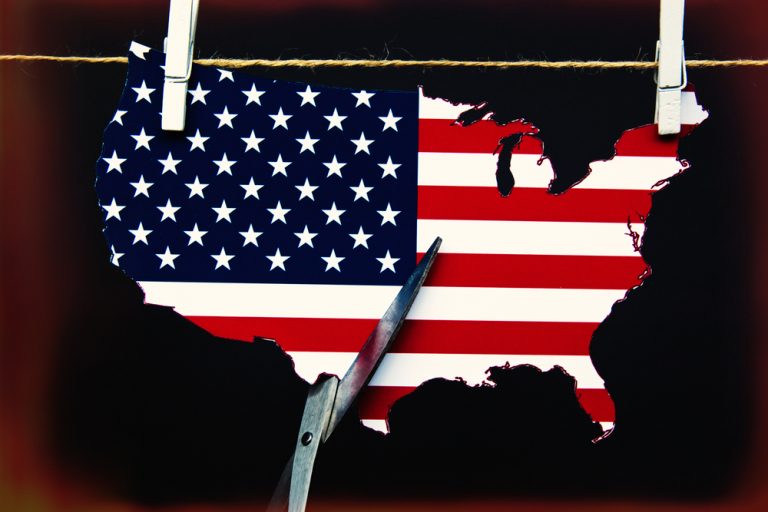
After the meeting in Ohrid, Serbia enters a state of turbulence
Serbia is gripped by protests, but Aleksandar Vučić assures that everything is well. The Serbian leader’s second meeting with Prime Minister of self-declared Kosovo Albin Kurti, mediated by EU officials, brings the moment of legitimization of the unrecognized republic closer. Serbs call Vučić s actions unconstitutional and call for his resignation. The country is entering a state of cold civil war, though the president calls the Ohrid talks a success.
To some extent, the February 15 protests were a point of no return in the escalation of tensions in Serbian society. On the Orthodox holiday of the Purification, Serbia celebrated its statehood day. At the same time, this year February 15 was the occasion for protests against Alexander Vučić’s policies by local patriots. A large part of the Serbian society is convinced that the president of the country has been gradually “surrendering” Kosovo since 2013. However, Vučić publicly stated that he “did not sign any agreements“ on the recognition of Kosovo.

On February 27, following a multilateral meeting in Brussels between the High Representative for Common Foreign and Security Policy Josep Borrell, EU Special Representative Miroslav Lajčák , Serbian President Aleksandar Vučić and Prime Minister of unrecognized Kosovo Albin Kurti, the outlines of a possible agreement between Belgrade and Pristina were published. The agreement is not signed yet, and there are oral negotiations about a road map for the future of Kosovo. But, in fact, the EU is opening the “window of Overton” without signing the agreement in order to teach the public consciousness that the Serbian region of Kosovo and Metohija is an independent state. The very theses of the agreement say that Serbia and “Kosovo” are two neighboring countries, and Serbia undertakes to recognize a number of attributes of its neighbor’s statehood, for example Kosovo’s passports and diplomas. Furthermore, it is not always necessary to sign any documents recognizing the separatist region as a legal subject of international law if the passports issued by the self-proclaimed republic receive legitimacy anyway.
The meeting in Brussels exacerbated the internal political confrontation in Serbia. For example, members of the right-wing parliamentary parties called for the resignation of Aleksandar Vučić and early elections. The situation began to escalate as the date of the next round of talks approached. This time, Vučić and Kurti were to hold a dialogue with the same mediators in Macedonia’s Ohrid on March 18. The day before, there were mass protests in Belgrade, organized officially by parliamentary parties such as Dveri, the New Democratic Party of Serbia, Zavetnici and the Movement for the Restoration of the Kingdom of Serbia. The organizers estimate that approximately 20,000 people participated in the rally. The number of protesters could have been higher, as citizens travelled from the regions to the capital by bus. At the same time, the police employed a cunning device: buses were stopped on the highway and drivers were written out to undergo a vehicle inspection, which prevented the vehicles from continuing. According to some reports, a total of over 80 buses were turned around by law enforcement officials. This situation only increased the tension in society.
Negotiations between Vučić, Kurti and European mediators lasted for a whole day on March 18. At night, the first information began to appear in the news sources. The parties agreed on an “annex to the agreement” between Belgrade and Pristina. The content of the document did not provoke a positive reaction in Serbian society. Moreover, in the afternoon of March 19, another rally took place in Belgrade, with participants blocking the city streets. The opposition parliamentary parties called on citizens to participate in a nationwide protest on March 24, blockading the local administrations. It is symbolic that they decided to start the action at 12:44, which refers to the text of the United Nations Resolution 1244. The document, which was adopted in 1999, protected the position of Serbia in Kosovo, although afterwards many of its provisions were systematically violated by the authorities of the self-proclaimed Pristina. The resolution itself is a document of “red lines” beyond which the separatists cannot go in their quest for secession from Serbia.

On March 19, Aleksandar Vučić also addressed the nation, reading out the paragraphs of the “Ohrid addendum” and giving his comments on the situation. In particular, the Serbian president once again stressed that he had not signed any documents recognizing Kosovo’s independence. Vučić stated that the agreement and its annex will be an integral part of Serbia’s and Kosovo’s membership in the EU. The president claims that he defended more favorable terms than those offered by other parties to the negotiations.
In any case, Serbia is entering a state of turbulence, and it is not yet clear what the consequences will be. Kosovo and Metohija are considered the spiritual cradle of the Serbian people, and the name “metoh” indicates the ownership of the land by the Church. Needless to say, a number of significant churches and monasteries of the Serbian Orthodox Church are located in the province. For the Serbian society, the long-standing situation with Kosovo is a bleeding wound that only grows worse with time, because the solution of the “Kosovo problem” is not going in favor of the Serbs. The question remains open as to why Western handlers are aggressively driving Kosovo toward recognition, as this could unseal the frozen conflict. With the collapse of Socialist Yugoslavia which already deprived Serbia of significant territory, it could be that a new blow to the heart of Serbia is simply in the hands of the U.S. and the EU. Serbia still has not joined either NATO or the European Union, which would mean the loss of autonomy for the country. The policy of military neutrality that Belgrade officially proclaims, in fact, allows it to cooperate both with the “collective west” and with the “east” represented by Russia and China. However, Russia and China actively support the aforementioned Resolution 1244 and are guarantors of Serbia’s territorial integrity. At the same time, the U.S. and the EU are simply playing the role of “devil’s advocates,” dissecting the fabric of the “Serbian world” with a good-natured smile on their faces.

